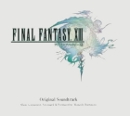
|
|
Devil Summoner Sound Collection Hyper Rearrange Collection :: Review by Chris
 |
Album Title: | Devil Summoner Sound Collection Hyper Rearrange Collection |
| Record Label: | SME Visual Works | |
| Catalog No.: | SVWC-7175/6 | |
| Release Date: | March 5, 2003 | |
| Purchase: | Buy at CDJapan |
Overview
The Devil Summoner Sound Collection Hyper Rearrange Collection was a bonus with orders of Devil Summoner Raidou Kuzunoha VS the Soulless Army in Japan. It features arrangements of popular pieces from the subseries, derived from the games Shin Megami Tensei: Devil Summoner, Devil Summoner: Soul Hackers, and Devil Summoner Raidou Kuzunoha VS the Soulless Army itself. Given Shoji Meguro handled the arrangement, we're given a modern and cool blend of jazz, rock, and electronic elements. Though just 25 minutes long, this album has quite a few highlights...
Body
The album opens with the main theme from Devil Summoner Raidou Kuzunoha VS the Soulless Army. Though brief, the track sets the tone nicely with its vibrant yet collected trumpet and saxophone work. The version is almost identical to the original, although the trumpet parts have been remastered to give them even more edge than before. The arrangement of series' mainstay "Kuzunoha Detective Office" subsequently makes an appearance. It's one of its most delightful renditions thanks to the amazing grooves created by the slapped bass and punctuated trumpets. What's more, there are some trumpet improvisations that enhance the mood without becoming obstrusive.
Meguro also brings a significant rock flavour to the action themes. Devil Summoner's "Boss Battle" is filled with extravagant electric guitar and keyboard solos against rapid drum work. Although the charismatic trumpets also keep the jazz flavour alive, the theme is pure Meguro rock otherwise. Soul Hackers' "Battle -Naomi-" is even better since there is tighter juxtaposition of rock and jazz elements and the electric guitar solo is even more special. A battle theme from the Soulless Army was also arranged for the album, "Battle -Raidou-". Once again, it is filled with hard-edged rock riffs and even the occasional electronic overtone, though there are also some encouraging melodic interludes.
There is quite a bit of diversity elsewhere on the soundtrack. "Yarai Ginza DE Pon" brings a funk element to the album with its slapped bass and trumpet lines. Though the phrasing is a little on the generic side, it quickly develops into something rich with Meguro's flair. "Tsukodu Town" is stylistically similar, but is almost entirely a guitar-driven track and subtly introduces tension through its duration. However, perhaps the most atmospheric remix on the album is "Hyperspace", inspired by Toshiko Tasaki's Algon score. Meguro uses his ability to build rhythms and soundscapes to blend brooding string work, ethereal synth work, and industrial synth to stunning results.
Summary
Overall, the Devil Summoner Sound Collection Hyper Rearrange Collection is an entertaining 25 minute experience. Shoji Meguro really demonstrates his unique style on this release, hybridising various popular styles and his own trademarks. It's no wonder he has become a star given the style fits the context of the series and is accessible on a stand-alone basis. He often sticks closely to the originals, but uses the freedom available to be quite extravagant at times and offer major enhancements in sound quality. Big fans of Shoji Meguro should consider hunting down a second-hand copy.

